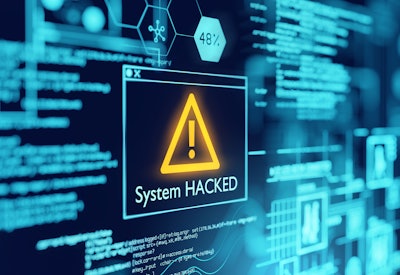
As if the supply chain disruptions weren’t rampant enough, 2021 saw increase of a new threat, cyber-attacks. In so much of the articles I write, interviews I conduct and news I cover, the presence of digital innovation is always there. And, for a reason. Technology supports the supply chain in a multitude of ways like machine learning discovering possible gaps that need to be filled, automation driving efficiency, various software and cloud technology offering significant visibility and much more.
But as with every innovation, there are risks that come along. One that is rearing its ugly head is cybersecurity. In the past, security breaches in retailers made headlines, as hackers were able to steal large amounts of consumer data and financial numbers. But this problem now spreads to infrastructure, operation and physical aspects of the supply chain. Two major recent incidents include the ransomware attack of the Colonial Pipeline, which resulted in 5,500 miles of pipe used for fuel transport shut down and another on meatpacker JBS, forcing beef-and-pork processing offline.
These two incidents took place throughout the last two months, but the issue was already growing in the supply chain. This has prompted an increase in focus on cyber security in infrastructure and the supply chain not just from individual companies, but from the United States government as well. On May 12, the White House administration drafted an executive order to improve the country’s cybersecurity.
In a recent expert column on the subject from Jscrambler, CEO says “To effectively gain control of their web supply chains, organizations must be able to define a set of ground rules that truly enforce how each of their website components can and cannot behave. As a result, they should be able to automatically block potentially malicious behaviors and ensure the integrity of the code.”
According to WSJ, a bipartisan bill was just proposed, designed to deter international cyberattacks, proposing prison sentences of up to 20 years for damaging computer systems at critical infrastructure operators.
While cyberattacks are extremely detrimental and a serious disruption, I do not foresee companies stepping back on technology but instead embracing technology further to solve these issues. For instance, the FBI was able to secure the $2.3 million ransom back from hackers that disrupted the Colonial Pipeline through bitcoin. While the means of how they did so is not released to the public, it is known that the FBI was able to get the encryption key to the Bitcoin account in which the ransom was deposited to. The traceability of cryptocurrency enabled the FBI to retrieve these funds, suggesting visibility and traceability amongst other technological innovations are the key to strengthening cyber security.














